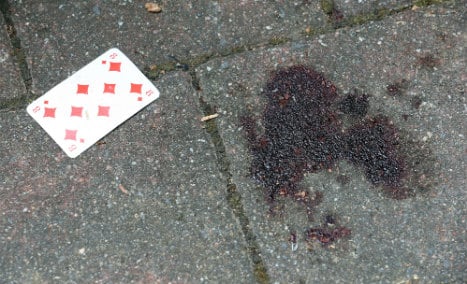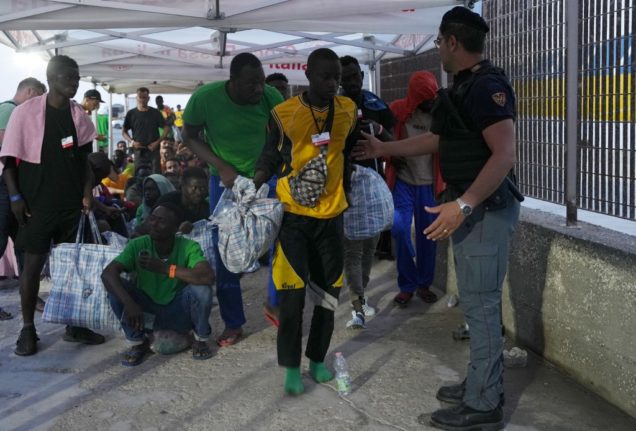Federal investigators have taken over the case looking into the bombing in Ansbach on Sunday that killed the attacker and left 15 other people injured, four of them seriously.
It takes a particular type of crime to go to federal prosecutors. The knife attack in Reutlingen which happened a few hours earlier is being treated as a local affair, despite also causing a fatality, as investigators believe it was a crime of passion.
The Ansbach case is different. Like the axe attack in Würzburg six days earlier, there is believed to be an Islamist motive behind it.
Prosecutors are investigating whether the bomber, Mohammed D., was a member of Isis and whether other people assisted in the attack.
But at this stage the evidence seems far from clear.
On Monday investigators found a video on the bomber’s phone in which he pledged allegiance to Isis.
Shortly after officials announced this, Isis claimed him as “our soldier” and later released a video of a man whose face was conveniently covered, but whom they claimed was Mohammed D.
There is more than a whiff of opportunism here. But that isn’t all.
Bild has done interesting research into the bomb and the bomber, and their findings give the distinct impression of a lack of competence to the operation which doesn’t fit with the deadly and effective nature of previous Isis attacks.
According to the tabloid, the charge was TATP, the substance used in the attacks on Paris and Brussels. But unlike in those attacks this easy to obtain but difficult to use substance was obviously not put to work by a skilled bomb maker.
Bild points out how undamaged the bomber’s rucksack was after the attack, as photos from the scene show.
Police sources also told the tabloid that D. “wanted to place the bomb at the entrance and detonate it from afar. That suggests that it exploded by mistake.”
The bomber himself was the only casualty and even he did not die immediately, as a woman at the scene attempted to resuscitate him.
“The explosive power of the bomb doesn’t seem to have been so great. One possible explanation is that the fuse detonated but the explosives didn’t,” Bild concludes.
Furthermore, the planning was unconvincing. The spot where Mohammed D.eventually set off the bomb does not appear to have been intended target. A security guard at a nearby music festival, where 2,000 people had congregated, saw D. observing him and walking up and down before deciding against entering.
This doesn't sound like the hardened, brainwashed murderers who killed police officers in front of Charlie Hebdo's offices or those who stormed the Bataclan concert hall with assault rifles.
The location is also susprising. Ansbach is a town of 40,000 people that few people outside Bavaria had heard of before the attack.
Isis, like al Qaeda, know that terrorism is most effective when it strikes the heart of a country.
New York, Madrid, London, Paris and Brussels have all been the site of the first terror attacks on other western countries. Ansbach would be a quixotic choice for their first German target, to say the least.
What we know about Mohammed D. also does not suggest he was a committed religious fanatic. He had tried to commit suicide twice, something considered a grave sin in Islam, like in Christianity. The fact that this attack came as Germany was trying to deport him also suggests a personal vendetta played a role.
The Würzburg attacker, we should also keep in mind, was someone who had radicalized himself, according to what we know from investigations.
The other two attacks last week – in Munich and Reutlingen – meanwhile, had nothing to do with Islamism.
None of this changes the fact that people have died on the streets of Germany in terrifying and random acts of aggression. It also shouldn’t stop us from looking more seriously at the risk that isolated, confused young refugees may turn to Isis as a channel for their anger.
But it does mean that we should keep perspective. Rampages can happen anywhere – they certainly happened in Germany before refugees from Muslim countries started arriving. And we know that they often lead to copycat attacks.
It is clear that there is no easy way to prevent them, but it is encouraging to see that Bavaria has reacted by announcing plans to strengthen its psychiatric care facilities.
On Tuesday Bavarian health minister Melanie Huml said that she wanted to “comprehensively build up psychiatric care for people in emergency situations.”
It is also no bad thing that enhanced security concepts are being discussed – it would be too idealistic to think every attack can be stopped through better treatment of troubled individuals.
What is less helpful is making premature and sweeping statements, for example when Bavarian minister-president Horst Seehofer began speaking about a “completely new dimension of terror”, before the facts support this assertion.
Let’s not fall into Isis’s propaganda trap and automatically assume they planned this. We shouldn’t need to remind ourselves that the aim of terrorism is to make us scared.
Now more than ever we need to stay calm and wait for the evidence to decide for us: until proven otherwise, I still say 'there has been no Isis attack on Germany.'
Correction: this article originally stated that the Charlie Hebdo attacks were carried out by Isis. They were in fact carried out by Al Qaeda in the Arab Peninsula.



 Please whitelist us to continue reading.
Please whitelist us to continue reading.